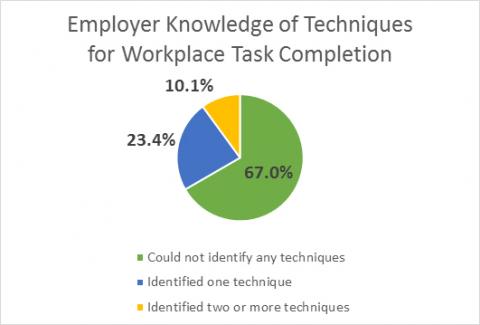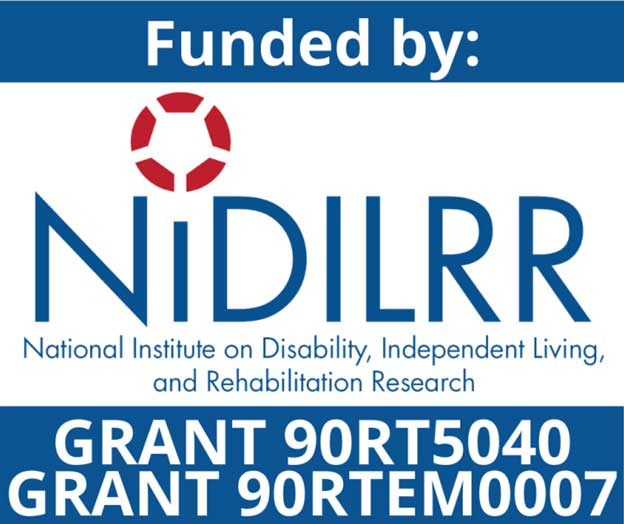We’ve all heard that employer attitudes are one of the biggest barriers to employment for people who are blind or have low vision. But how much do we really know about what employers think and understand about how blind people can perform jobs? We conducted a survey with 197 employers across four states to find out what they know and think about blind people as employees. Some of the employers were contacts of Vocational Rehabilitation (VR) agencies in those states, but most were randomly selected employers.
We found that...
- The randomly selected employers who participated in the survey had limited to no knowledge about how blind people could perform five specific job tasks, such as accessing a computer or reading a regular-print document.
- Employers who were contacts of VR agencies were more knowledgeable about the ways blind people perform on the job, but their knowledge was still far from complete.
- The majority of employers in the survey could not correctly identify ways to accomplish any of the five tasks we asked about. Only 1 in 10 could correctly identify ways to accomplish two or more tasks.

- Employers have a wide range of attitudes regarding hiring a blind employee, ranging from very negative to very positive. The overall average score on the attitude scale was at approximately the midpoint.
- Employers who were VR contacts tended to have more positive attitudes towards blind employees than randomly selected employers.
- Three factors were related to more positive attitudes towards blind people as employees:
- Greater knowledge about how blind people can perform job tasks
- Having hired someone who is blind in the past
- Having communicated with the VR agency serving blind people in their state
Why is this important for you as a service provider?
- For the most part, employers are not knowledgeable about things that are common knowledge to us, like how blind people use a computer. This means you need to educate them! When employers know more, they are more likely to have positive attitudes toward hiring blind employees.
- Employer communication with their local VR agency is related to better attitudes towards blind people as employees – this gives you a good reason to make an effort to reach out to employers! Keep in mind that part of this effort can be education.
- Employers who were VR contacts had better attitudes and greater knowledge. By developing relationships with employers, you can make a difference for your consumers. Remember, the first step in developing a relationship is that initial contact with them.
- Trial work experiences can give an employer a “hiring experience,” which is related to better attitudes towards blind employees. These work experiences give employers a risk-free chance to try out a blind employee and the employee an opportunity to gain work experience. Have you considered trial work experiences for your consumers?
Findings taken from the following article
McDonnall, M. C., O'Mally, J., & Crudden, A. (2014). Employer knowledge of and attitudes toward individuals who are blind or visually impaired as employees. Journal of Visual Impairment & Blindness, 108(3), 213-225.
